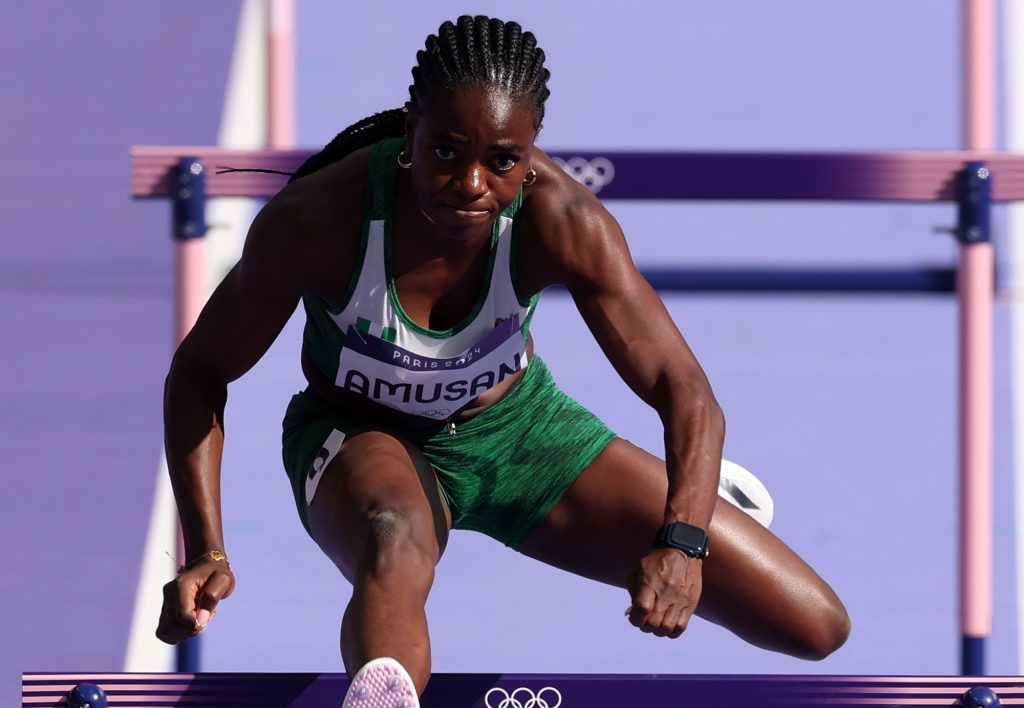Once more, Nigeria has returned from the Olympics empty-handed, this time from Paris 2024, despite a record investment of N12 billion and fielding its largest-ever team of 88 athletes. The result? Not a single medal, not even a bronze. It’s a story we know too well – a disheartening cycle of high hopes, underwhelming performances, and inevitable post-mortems that leave us asking the same question: How did we get here again?
To say that Nigeria’s performance was disappointing would be an understatement. Nigeria’s performance at the Paris Olympics was a head-scratching and monumental embarrassment.
When you consider that other African nations, with far less fanfare, managed to bring home multiple medals, the situation becomes even more perplexing. Kenya, for instance, clinched four golds, and tiny Botswana, competing in just a handful of events, won their first-ever Olympic gold. Meanwhile, Nigeria, the most populous black nation, couldn’t even secure a podium finish.
What’s particularly galling is that this outcome wasn’t entirely unforeseen. It is a good thing that SBM Intelligence highlighted the key issues in its NIGERIA IN PARIS 2024 : N OT HING F OR YOU. Nigeria’s sports administration has long been plagued by poor planning, mismanagement, and a baffling lack of coordination. The preparations for Paris were no different. Reports of athletes receiving two sets of kits—one from the Athletics Federation of Nigeria and another from the National Olympic Committee—paint a picture of chaos that borders on the absurd. Add to this the tragicomic episode where Ese Ukpeseraye, Nigeria’s first-ever Olympic cyclist, had to borrow equipment from the German team, and you start to wonder whether this was a serious attempt at competing or a poorly staged farce.
The mismanagement didn’t stop there. Favour Ofili, a top prospect for the 100-metre sprint, found herself omitted from the competition due to a registration error, a mistake that echoes the incompetence seen at the Tokyo 2020 Games when several athletes were disqualified for missing doping tests. Ofili’s lament on social media—“I have worked for four years to earn this opportunity. For what?”—captures the frustration of a nation’s brightest talents being let down by their own country.
This recurring theme of disorganisation and lack of preparedness is not just embarrassing; it’s demoralising for the athletes who pour their hearts and souls into representing Nigeria on the world stage. The situation demands more than just an apology from the Sports Minister. It calls for a complete overhaul of Nigeria’s approach to sports management.
One might think that a population of over 200 million would naturally produce world-class athletes in abundance. But as the Paris 2024 debacle shows, numbers alone do not translate to success. Countries like Kenya, with far smaller populations, invest strategically in sports where they can excel, and the results speak for themselves. Nigeria, on the other hand, seems content to pour resources into popular but medal-shy sports like football, ignoring disciplines that offer multiple opportunities for glory.
The rot runs deep. Decades ago, Nigeria had a system that nurtured young talent from the grassroots, a system that produced the track and field heroes of the 1990s. That system has since withered, leaving a void that has yet to be filled. Meanwhile, Kenya’s school-based athletic competitions continue to produce champions year after year, a testament to the power of long-term investment in youth sports.
A complete overhaul of sports administration is needed, prioritising transparency, accountability, and long-term strategies.
We must invest wisely, redirect resources towards sports with high medal potential and ensure funds are used effectively for athlete development.
Nigeria must replicate successful models like Kenya’s school sports system to nurture young talent at the grassroots level.
Among other strategies, we need to end the talent drain and create a supportive environment for athletes by providing adequate facilities, training, and fair treatment.
Nigeria’s Olympic misadventures have become a predictable tragedy, one where the plot remains the same, and the outcome is always disappointing. It’s time for a new script, one where proper planning, strategic investment, and genuine support for athletes take centre stage. If not, we might as well start preparing our excuses for the next Olympics. Because, yet again, it will end the same way—empty-handed, bewildered, and wondering, how despite being ‘God’s own people’ and our penchants for prayer marathons, we return home heavy-hearted, head-bowed with tucked tails.
Nigeria cannot afford another Olympics like Paris 2024, otherwise, we’ll end up competing in a special Olympics, but for losers.

